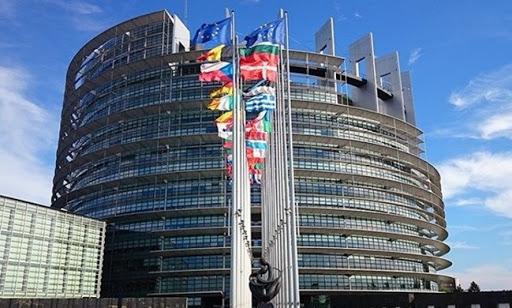Following the cessation of hostilities in Nagorno-Karabakh on 10 November 2020, discussion continued on a new Partnership and Cooperation Agreement , replacing the one of 1999. However the European Parliament could freeze the deal.
The bilateral relations of the European Union with Azerbaijan are based on the EU-Azerbaijan Partnership and Cooperation Agreement in force since 1999. This agreement is under revision and discussions began in 2017. This could lead to a new agreement before summer 2021.
First, everything seemed ready for November 1, 2019, under the leadership of Federica Mogherini during the era of Jean Claude Junker’s Commission.
But now some tensions could come again from the European Parliament, as explained later in the Conclusions.
1. EU meets Azerbaijani representatives
The most recent meeting between the EUand Azerbaijan was in the framework of the 17th Cooperation Council meeting on 18 December 2020.
The meeting was led by High Representative of the European Union for Foreign Affairs and Security Policy, JosepBorrell, accompanied by the EU Commissioner for Neighbourhood and Enlargement Olivér Várhelyi and by the Minister of Foreign Affairs, Jeyhun Bayramov.
After reviewing the implementation of the jointly agreed EU-Azerbaijan Partnership Priorities ( read the document ), Azerbaijani Minister of Foreign Affairs, Jeyhun Bayramov shared the EU view to conclude an ambitious new comprehensive bi-lateral agreement, replacing the current one.
The goal of the new one is to help the diversification of Azerbaijan’s economy, enhance the trading relationship and extend the cooperation more broadly.
Josep Borrell offered the EU supportsaying “the EU stands ready to assume a role in supporting and shaping a durable settlement to the Nagorno Karabakhconflict, in close complementarity with the Minsk Group Co-Chairs. We are ready to use our peacebuilding and reconstructiontools to support this.”
2. Future EU-Azerbaijan cooperation
The new Partnership and Cooperation Agreement could include the following chapters.
a. Energy
Southern Gas Corridor (TAP). The objective is its extension to the Eastern Balkans, in order to connect EU with Azerbaijan. TAP will cross seven countries and will stretch across 3,500 kilometres. It is one of the most complex gas value chains ever developed. Involving over a dozen major energy companies, it is made up of several separate energy projects representing a total investment of approximately €35 billion.
b. Trade
The current EU-Azerbaijan trade relations are based on the Partnership and Cooperation Agreementwhich has been in force since 1999 and has led to excellent business relationships. The EU is the biggest trade partner of Azerbaijan, been responsible of over 50% of Azerbaijan’s trade. The most important items of trade are the EU import of gas and the export of industrial products.
In February 2017, the EU and Azerbaijan launched negotiations that, after seven trade rounds, including a chapter on “trade and sustainable development”, are now well underway and eEuropa.bloghas learned that the new agreement is expected to enter into force before summer 2021. The EU is also engaged to support Azerbaijan’s future WTO membership.
c. Investments
EU is the biggest investor in the country, with nearly €7 billion of direct investment and is the largest foreign grant donor to both government and civil society in Azerbaijan.The European Investment Bank (EIB) has worked with Azerbaijan since 2014.
EIB operates under the framework of the European Neighbourhood Policy (ENP), the Eastern Partnership (EaP) and the current EU bilateral agreements. EIB invested more than €96 million in the country and through cooperation with a local bank has provided funding worth €25 million to more than 120 enterprises.
With the support of the EIB, Azerbaijan is aiming to diversify its economy, with investments in renewable energy and energy efficiency . EIB priorities in Azerbaijan feature the promotion of balanced and sustained economic development, especially for rural areas, the reduction of inequalities and the diversification of national energy sources.
d. Connectivity
Apart from the energy sector and related infrastructures, Azerbaijan benefits from its favorable position at the crossroads of transport links, linking North and South, East and West.
The EU has already invested in major infrastructure projects such as the port of Baku and the Baku-Tbilisi-Kars railway and provides support for capacity building, such as the port of Baku and its free trade area.
In February 2019, EU and Azerbaijan started the “Transport Dialogue” to discuss the trans-regional logistics-infrastructure, with the Baku–Tbilisi–Kars (BTK) railway, Port Baku facilities and the North-South and South-West transport corridors.
e. Humanitarian assistance
EU declared to be ready to contribute €10 million to further humanitarian assistance and to work towards more comprehensive conflict transformation and longer-term socio-economic development.
The new Partnership and Cooperation Agreement could foster a new economic and political relationship between the EU and Azerbaijan, which the whole region could one day benefit from.
For sure, tensions between Armenia and Azerbaijan would not suddenly be resolved. The EU’s will is always to offer opportunities for peaceful confrontation and offer opportunities for prosperity to the population.
The new agreement should be subject to democratic reforms? Member of the European Parliament (MEP) Marina Kaljurand, who is chairing the European Parliament’s delegation for Relations with the South Caucasus, said that “any new economic agreement with this country should signed after democratic reforms and the building of democratic institutions”.
Tensions between MEPs and Azerbaijani authorities began in 2015, when the country withdrew its membership from the Euronest Assembly (made up of MEPs and parliamentarians from the six countries of the Eastern Europe and Caucasus countries) after having received strong criticism from the European Parliament on the rule of law, allegations of democratic deficit and lack of political plurality.
Today, the Estonian lawmaker and former foreign minister insisted, saying “I will say that it’s very much in the hands of Azerbaijan today”.
The Council of the EU could approve the new agreement very soon, unless it will be stopped by the European Parliament.
By Paolo Licandro
eEuropa.org
More about: #EuropeanParliament #Azerbaijan
















































